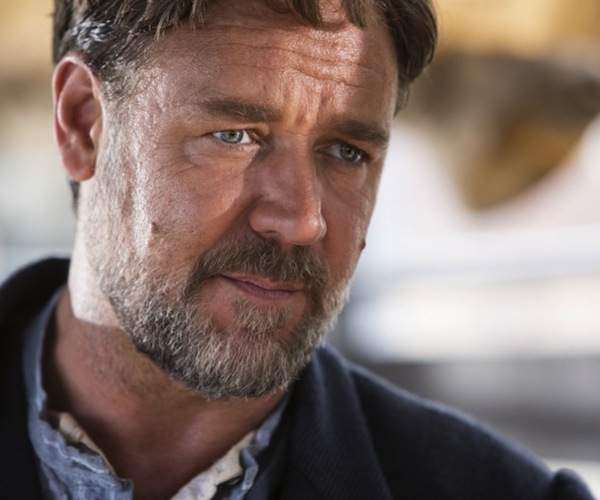Film Review: “The Water Diviner” — Starts Out Well But Takes a Dive
Actor Russell Crowe’s directorial debut is visually gripping and very well acted — but its ending is disappointingly hokey.
The Water Diviner, directed by Russell Crowe.

Director/actor Russell Crowe in “The Water Diviner.”
By Paul Dervis
Watching The Water Diviner is a bit like watching a car crash. The trip starts off well, but the auto slams into a wall in the last half hour.
Russell Crowe, impressively dynamic as an actor in such movies as A Beautiful Mind and Cinderella Man, not to mention his turns in commercial successes such as Gladiator and L. A. Confidential, takes his initial turn behind the camera in this tribute to Peter Weir’s Gallipoli. Though not a sequel to that 1981 film masterpiece, it is definitely inspired by it.
And, at the start, The Water Diviner feels like a worthy successor.
The film’s images are steeped in the arid soil of the Australian desert as well as the unforgiving battlefields of the Turkish peninsula. Director Crowe makes every shot significant — in the beginning. The screenplay’s approach to the Battle of Gallipoli features an intriguing reverse twist: we follow the Turks, not the Aussies, in the conflict. And the result of honoring the ‘enemy” breathes new life into the well-worn concept that ‘War is Hell.’
Back in Western Australia, the story focuses on the victims of the epic battle through the experience of their grieving parents. Crowe plays Joshua Connor, a man who is dealing with the trauma of having three sons buried in unmarked graves several thousand miles away. It is too much for his wife to withstand, and in a fit of despair she drowns herself in the water outside their home…an ironic touch given that water is in short supply at the homestead (thus the title of the film).
Jacqueline McKenzie of Deep Blue Sea fame plays this tiny yet pivotal role; she deservedly won a 2015 Australian Film Institute Award for Best Supporting Actress. The film won the Best Film prize while Crowe garnered a Best Actor nod. Besides the acting, much of the film is visually compelling, from the jaw-dropping expanse of the outback to the chaotic claustrophobia of war. In one early scene, an immense dust storm that Connor and his sons cannot outrace engulfs the entire screen. And in Istanbul, where more than half of the film takes place, we are taken into the lush, colorful, and richly textured chambers of a magnificent hotel that sits in the heart of the bleak and overcrowded city.
Four years after the battle, Connor travels to Turkey in search of the remains of his sons. The interplay between Crowe’s character and the inhabitants of the hotel are handled with dramatic nuance. All involved lost loved ones in the battle, and all need to come to terms with their emotions and mourn.
But here is where The Water Diviner begins to break down into formula melodrama. The hotel’s proprietor, a beautiful widowed mother played by Olga Kurylenko, who has previously been cast in action pictures such as Quantum of Solace, is initially cold to Connor. After all, he represents the enemy. But slowly and surely she warms up to the simple farmer and his quest to take his sons home from the battlefield. So far, an acceptable plot development.
But no. Not good enough.
There has to be a romantic spark…and more…maybe one of Connor’s sons still lives!
Now we skip off into Indiana Jones territory. What had been a thought provoking mood piece tumbles down the rabbit hole of Hollywood action and adventure hijinks…and with ludicrous results. All of a sudden we have a bunch of garden variety ‘bad guys’ and an unbelievable plot twist.
It’s just too bad. Because the film was really good until the end.
Does it ruin The Water Diviner? No. It is worth seeing. It is visually gripping and very well acted.
But, oh, that hokey ending!
Paul Dervis has been teaching drama in Canada at Algonquin College as well as the theatre conservatory Ottawa School of Speech & Drama for the past 15 years. Previously he ran theatre companies in Boston, New York, and Montreal. He has directed over 150 stage productions, receiving two dozen awards for his work. Paul has also directed six films, the most recent being 2011’s The Righteous Tithe.
Tagged: Battle of Gallipoli, Paul Dervis, Russell Crowe, The Water Diviner
